★★½
“Always protect your family.”
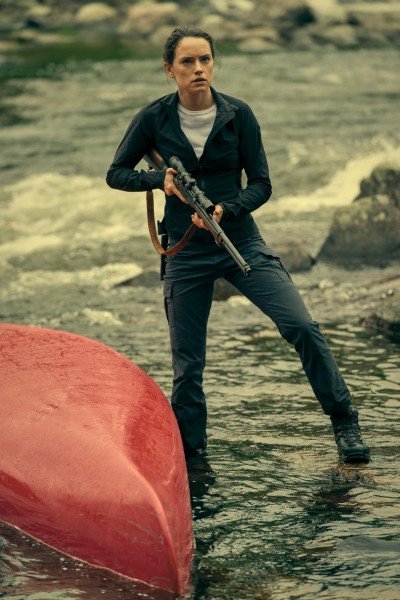 This begins with the young Helena, living deep in the woods with her mother and father, Jacob (Mendelsohn). He’s teaching her the ways of the forest, including hunting and the need to be ruthless, with the top priority expressed in the tagline above. However, things aren’t quite what they seem: it feels like it could be a century ago, yet the tranquil illusion is shattered when a lost stranger on an ATV rides up. Mom makes a break for freedom with Helena, for it seems this is actually a kidnapping which has gone on for a long time. Fast forward twenty years: Jacob is in prison, mom killed herself and Helena (Ridley) is working a dead-end job, but married to Stephen (Hedlund), and with a daughter, Marigold.
This begins with the young Helena, living deep in the woods with her mother and father, Jacob (Mendelsohn). He’s teaching her the ways of the forest, including hunting and the need to be ruthless, with the top priority expressed in the tagline above. However, things aren’t quite what they seem: it feels like it could be a century ago, yet the tranquil illusion is shattered when a lost stranger on an ATV rides up. Mom makes a break for freedom with Helena, for it seems this is actually a kidnapping which has gone on for a long time. Fast forward twenty years: Jacob is in prison, mom killed herself and Helena (Ridley) is working a dead-end job, but married to Stephen (Hedlund), and with a daughter, Marigold.
Then Jacob escapes custody while being transferred, and all hell breaks loose. For Helena has changed her identity, in an effort to disconnect from her past. Stephen is entirely unaware of his wife’s history, until the authorities show up on their doorstep. Helena is naturally concerned that her father is going to make contact, or worse. Inevitably, that’s exactly what happens, and she is going to have to dredge up those long-abandoned skills in order to live up to the standards ingrained in her, when she was living in the woods. It will also require her to return to her childhood haunt, for a confrontation with Jacob which has been several decades in the making.
I suspect the main problem is that we know where it’s going to go, almost from the moment we are told Jacob has broken out of jail. The film, however, insists on dallying around, having Helena’s paranoia ramp up in a middle act that loses all momentum, creeping around at night and hearing the flute-like music which her father used to play. Does this indicate he is near, or simply that the stress is triggering some kind of psychotic episode? To be honest, we don’t particularly care. I kinda lost much sympathy for her, after realizing she had hidden everything from Stephen. You’d think the fact she has more tats than a Maori chieftain might clue you in to something of a checkered past, but that’s apparently just me.
Still, Jacob looms over the entire film even when he is not physically present, since he has, understandably, been living rent-free in his daughter’s head. There is a seasoning of Stockholm syndrome here, in the way the father has impressed his personality on his daughter. Yet none of it is particularly engaging. We’re left just waiting for the face-off which we know is inevitable, where Helena has to decide how far she is willing to go, in order to protect Marigold. Is that further than Jacob is prepared to go, for what he believes is the best interests of his daughter? I feel the answer to that question should be more interesting than this bland exercise in wilderness abuse ends up becoming.
Dir: Neil Burger
Star: Daisy Ridley, Ben Mendelsohn, Gil Birmingham, Garrett Hedlund





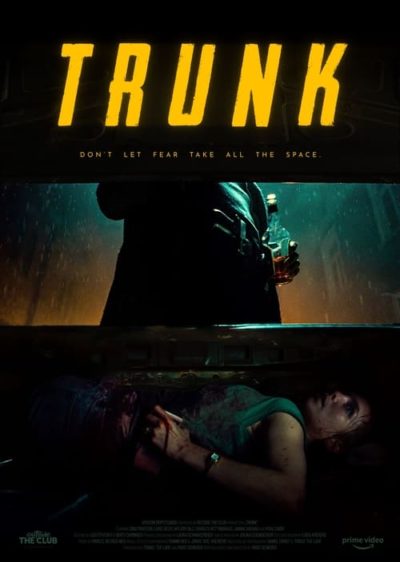 This certainly wastes no time. Malina (Martens) regains consciousness to find herself in the trunk of a car stopped at a petrol station. Things get worse, as she discovers her legs are paralyzed, and she has a nasty wound in her lower abdomen. How did she get there? And more importantly, what can she do to escape her predicament? It’s certainly one hell of a hook, and in the way it hits the ground running – as well as its Germanic origins, almost real-time approach and the plucky heroine with a sketchy boyfriend, forced to survive on her own – reminded me of
This certainly wastes no time. Malina (Martens) regains consciousness to find herself in the trunk of a car stopped at a petrol station. Things get worse, as she discovers her legs are paralyzed, and she has a nasty wound in her lower abdomen. How did she get there? And more importantly, what can she do to escape her predicament? It’s certainly one hell of a hook, and in the way it hits the ground running – as well as its Germanic origins, almost real-time approach and the plucky heroine with a sketchy boyfriend, forced to survive on her own – reminded me of  I was intrigued by this, mostly due to the presence of Penn, an Australian champion in karate who appeared (albeit, in minor roles) in a number of Hong Kong action movies of the nineties. Her blonde hair made her stand out, as one of the few gwailo women to be seen in the genre. This TV movie, intended as a pilot for a series appears to have been her swing at stardom in the West. After it fell agonizingly short, she seems to have given up on acting entirely. She now appears to be the CEO of Signal 8 Security, a private security company back in Hong Kong – the celebrity clients listed on the company’s website appear to include Jackie Chan, ironically enough.
I was intrigued by this, mostly due to the presence of Penn, an Australian champion in karate who appeared (albeit, in minor roles) in a number of Hong Kong action movies of the nineties. Her blonde hair made her stand out, as one of the few gwailo women to be seen in the genre. This TV movie, intended as a pilot for a series appears to have been her swing at stardom in the West. After it fell agonizingly short, she seems to have given up on acting entirely. She now appears to be the CEO of Signal 8 Security, a private security company back in Hong Kong – the celebrity clients listed on the company’s website appear to include Jackie Chan, ironically enough. It’s often forgotten that America didn’t join World War II until almost three years after it started. In the early days, there was a strong isolationist movement, which saw the conflict as other countries’ problems, from people like aviator Charles Lindbergh and broad groups like the America First Committee. Indeed, there was a surprising amount of support for the Nazi regime: in February 1939, a rally at Madison Square Gardens drew twenty thousand people, and even after the war started in Europe, there was significant activity attempting to keep America out. It’s in this period, between the start of the war and the bombing of Pearl Harbor, that the story told here takes place.
It’s often forgotten that America didn’t join World War II until almost three years after it started. In the early days, there was a strong isolationist movement, which saw the conflict as other countries’ problems, from people like aviator Charles Lindbergh and broad groups like the America First Committee. Indeed, there was a surprising amount of support for the Nazi regime: in February 1939, a rally at Madison Square Gardens drew twenty thousand people, and even after the war started in Europe, there was significant activity attempting to keep America out. It’s in this period, between the start of the war and the bombing of Pearl Harbor, that the story told here takes place.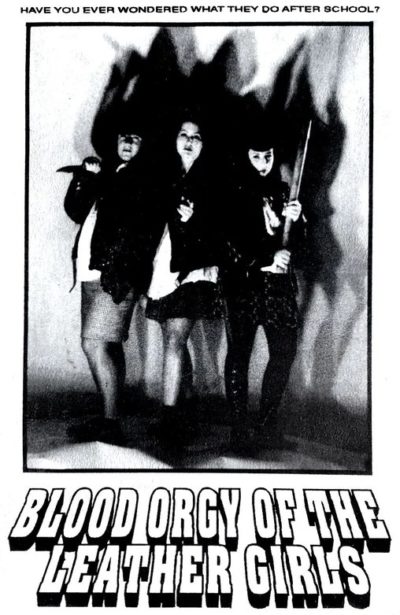 Incompetent on every level, this proves there’s a section of cult fandom which would praise a dog turd to the heavens, if told it had a “feminist” message. The title is probably – scratch that, certainly – the best thing about this, suggesting a throwback to the JD films of the fifties, filtered through the lens of Russ Meyer. “Suggesting” is the keyword here, since the reality is more like the finger-paintings of a developmentally challenged three-year-old. I guess the title is actually inspired by Blood Orgy of the She Devils, a film made in 1973 by Ted V. Mikels, one of the most inept directors ever to pick up a camera. This movie is poor enough Mikels would likely require his film’s name be taken off it.
Incompetent on every level, this proves there’s a section of cult fandom which would praise a dog turd to the heavens, if told it had a “feminist” message. The title is probably – scratch that, certainly – the best thing about this, suggesting a throwback to the JD films of the fifties, filtered through the lens of Russ Meyer. “Suggesting” is the keyword here, since the reality is more like the finger-paintings of a developmentally challenged three-year-old. I guess the title is actually inspired by Blood Orgy of the She Devils, a film made in 1973 by Ted V. Mikels, one of the most inept directors ever to pick up a camera. This movie is poor enough Mikels would likely require his film’s name be taken off it. It feels as if South Korea is going through all the Olympic sports, making films based on each of them. Indeed, this film’s alternate title makes it a sequel to Take Off, about ski-jumping. I’ve seen two of the previous entries, covering archery (
It feels as if South Korea is going through all the Olympic sports, making films based on each of them. Indeed, this film’s alternate title makes it a sequel to Take Off, about ski-jumping. I’ve seen two of the previous entries, covering archery (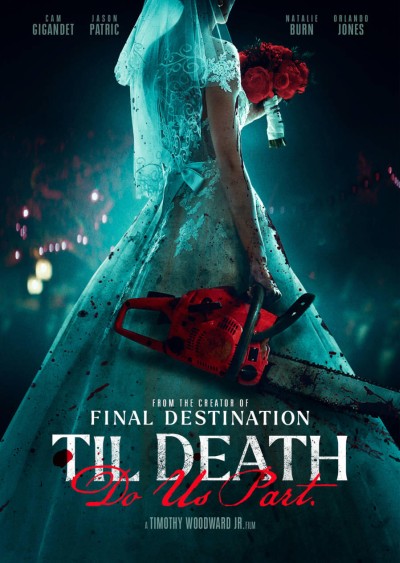 Great poster. Solid trailer. In the light of those, unfortunately, the film can only be described as a significant disappointment. While it’s good, and occasionally
Great poster. Solid trailer. In the light of those, unfortunately, the film can only be described as a significant disappointment. While it’s good, and occasionally  This is another in a recent burst of Thai action heroine movies, including
This is another in a recent burst of Thai action heroine movies, including 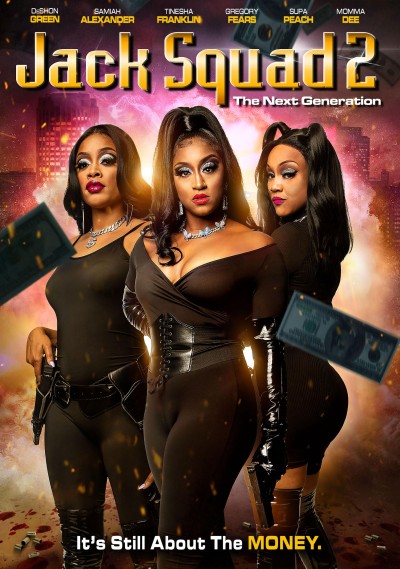 This is a question posed by the bad guy (Fears) towards the end of this, and of course, he provides the usual explanation in response: “It’s doing the same thing, expecting different results.” After watching this, I would choose to adjust it slightly. A valid definition of insanity is making the same movie, and expecting different results. Because it is, more or less, what Rankins has done here: it’s a remake of his own movie from fourteen years ago,
This is a question posed by the bad guy (Fears) towards the end of this, and of course, he provides the usual explanation in response: “It’s doing the same thing, expecting different results.” After watching this, I would choose to adjust it slightly. A valid definition of insanity is making the same movie, and expecting different results. Because it is, more or less, what Rankins has done here: it’s a remake of his own movie from fourteen years ago, 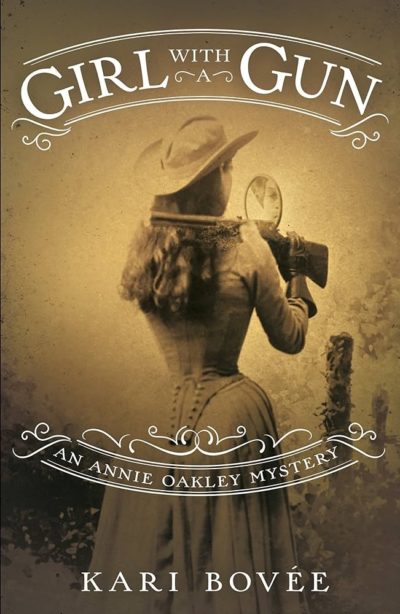 This is an interesting idea. Take a real-life historical action heroine, whose life provides the underlying framework, and write a fictional story around that. Obviously, Annie Oakley really existed, and the broad strokes of her life here are accurate. If you’ve read
This is an interesting idea. Take a real-life historical action heroine, whose life provides the underlying framework, and write a fictional story around that. Obviously, Annie Oakley really existed, and the broad strokes of her life here are accurate. If you’ve read